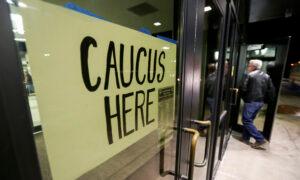As President Joe Biden and former President Donald Trump race toward their parties’ respective nominations, it may feel to some like the presidential primaries are already over. But in truth, most states have yet to weigh in.
That will change next month, on Super Tuesday, when voters across 15 states and one U.S. territory are set to sound off on their preferred candidate for president.
Here’s a breakdown of what you need to know.
What’s Super Tuesday?
Super Tuesday is the unofficial name for the date of the presidential election cycle on which the greatest number of states hold their primary elections. As such, roughly one-third of the total delegates to the presidential nominating conventions can be won on Super Tuesday.
The date can fall in either February or March, depending on when the early voting states hold their primary contests. This year, Super Tuesday falls on March 5.
Who Votes on Super Tuesday?
The number of Super Tuesday states can vary as each state chooses its presidential primary date in accordance with its own laws. The 15 states voting this year are Alabama, Alaska, Arkansas, California, Colorado, Maine, Massachusetts, Minnesota, North Carolina, Oklahoma, Tennessee, Texas, Utah, Vermont, and Virginia. Residents of the territory of American Samoa will also cast their ballots.
New this year is that Iowa will be announcing results on Super Tuesday. While Iowa Republicans held their traditional caucuses on Jan. 15, the state’s Democrats opted to break with tradition and hold a vote-by-mail caucus, with the results to be announced on March 5. The change is a result of the Democratic National Committee’s controversial decision to make South Carolina the first state on its primary calendar.
What’s the History Behind Super Tuesday?
Tuesday has been the day of choice for federal elections since the mid-19th century when Congress passed a law designating the Tuesday after the first Monday in November as Election Day. But what is now known as Super Tuesday did not become a common occurrence until much later.
But it wasn’t until 1984 that a bigger Super Tuesday event earlier in the year started to become a modern tradition as states began “front-loading,” or moving up their primary contests, to increase their influence over the nomination process.
Will Super Tuesday Make a Difference This Year?
Historically, Super Tuesday has been viewed as one of the most consequential dates on the presidential primary calendar, helping to solidify a candidate’s status as their party’s front-runner. But this year, the point may be moot.
President Biden faces two challengers for the Democratic nomination—author Marianne Williamson and Rep. Dean Phillips (D-Minn.)—but neither has posed much of a threat thus far.
The Democratic National Committee has also all but declared President Biden the nominee, declining to host primary debates, even declining to include his challengers on the ballot.
Nevertheless, former South Carolina Gov. Nikki Haley, at 18.8 percent, is plowing on in her home state, where 50 delegates will be up for grabs on Feb. 24.
To secure the Republican nomination, a candidate needs to win at least 1,215 of the party’s 2,479 delegates. Thus far, Ms. Haley has claimed 17 delegates to President Trump’s 33. She won’t receive any of Nevada’s 26 delegates, as she chose not to participate in the state’s Republican caucus, which is slated for Feb. 8. But close races in South Carolina, Idaho, and Michigan could keep her in the running heading into Super Tuesday, from which 874 delegates will be awarded.
In New Hampshire, the former U.N. ambassador managed to bridge enough of the gap to come within 11 points of President Trump, though a large percentage of her support in that contest is believed to have come from Democrats who support President Biden. If she stays in the race until Michigan on March 2, she may have a chance to emulate that result as the Great Lakes State allows all voters to participate in the primary election of their choosing, regardless of political affiliation.
However, unless she achieves a convincing win somewhere soon, it’s going to be difficult for Ms. Haley to continue presenting herself as the more electable choice in the race.
Original News Source Link – Epoch Times
Running For Office? Conservative Campaign Consulting – Election Day Strategies!


